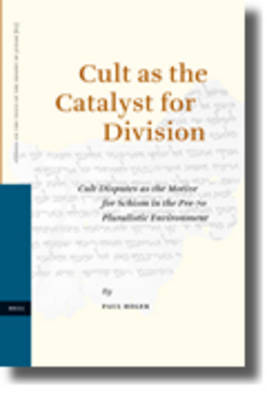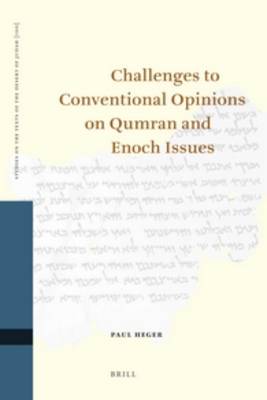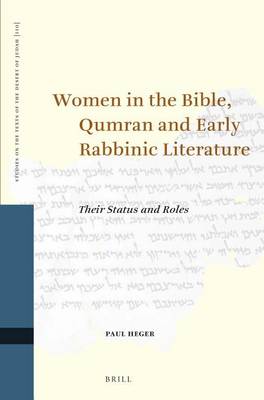Studies on the Texts of the Desert of Judah
3 primary works
Book 65
The study asserts that conflicting sacrificial rules were the motive of the schism in Judean society, in the last period of the Second Temple. The study substantiates the thesis by a meticulous examination and comparison of the rabbinic and Qumran exegetical methods, and an exhaustive scrutiny of biblical sacrificial rules, demonstrating their deficiencies, the cause of the exegetical dissensions among the different groups. A short record of historical struggles, due to cult issues, and a scrutiny of Qumran literature, corroborating the utmost significance of the Temple cult in that group, complement the study. The study is useful for a comprehension of Qumran literature and particularly of the system of thought of its authors and their approach to the biblical writings.
Book 100
Challenges to Conventional Opinions on Qumran and Enoch Issues
by Paul Heger
Published 1 January 2011
Some literary expressions in the Dead Sea Scrolls led scholars to allege that their authors professed a dualistic and deterministic worldview of Zoroastrian origin and that the omission of Moses and Sinai from the Enoch writings evinces that a segment in Jewish society marginalized the Torah, adopting Enoch's prophecies as its ethical guideline. This study challenges these allegations as utterly conflicting with essential biblical doctrines and the unequivocal beliefs and expectations of Qumran's Torah-centered society, arguing that scholars' allegations are erroneously based on interpreting ancient texts with a modern mindset and influenced by the interpreter's personal cultural background. The study interprets the relevant texts in a manner compatible with the presumed doctrines of ancient Jewish authors and readers.
Book 110
Women in the Bible, Qumran and Early Rabbinic Literature: Their Status and Roles portrays the tension between the unity of husband and wife and their different legal and social status from a wide range of perspectives, as deduced from the texts of the three corpora. The volume discusses the related topics of divorce, polygamy, woman's obligations to fulfill precepts, membership in the community, genealogy and attitudes toward sex, such as rejection of asceticism. Women in the Bible, Qumran and Early Rabbinic Literature begins with an objective interpretation of the biblical narratives of the Creation and the Fall, the intellectual basis of Jewish attitudes toward women, and then analyzes the divergent interpretations of Qumran and the Rabbis, the grounds of their distinct doctrines and halakhot.


